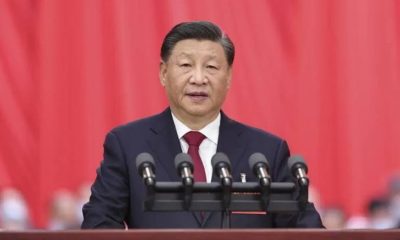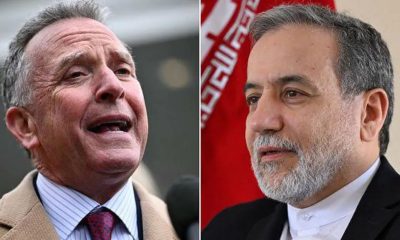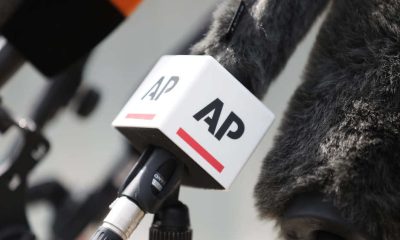International
Zelensky disappointed in US’s reaction as Russia kills 18 in his hometown
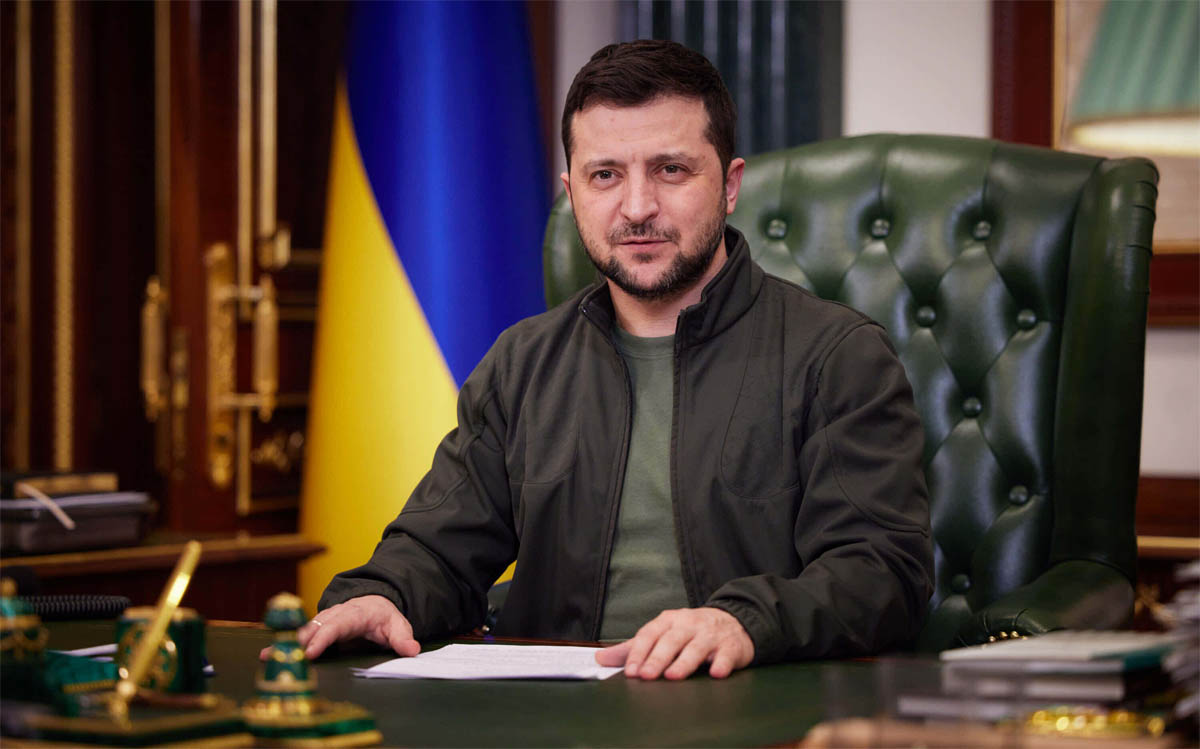
Zelensky disappointed in US’s reaction as Russia kills 18 in his hometown
Ukrainian President Volodymyr Zelensky on Saturday slammed the US embassy in Ukraine for what he called a “weak” statement that did not blame Russia for a missile strike that killed 18 people.
The criticism came as US President Donald Trump has pushed for a partial ceasefire between Russia and Ukraine while seeking a thaw in ties with Moscow.
Writing on social media Zelensky said that the “reaction of the US Embassy is unpleasantly surprising”.
“Such a strong country, such a strong people — and such a weak reaction,” Zelensky said.
READ ALSO:
- Poisonous fluorides in toothpaste: Pharmacists counter televangelist’s claims
- Police raid criminal camps, recover food items in Anambra
- Oba Owoade crowned Alaafin of Oyo
“They are even afraid to say the word ‘Russian’ when talking about the missile that killed the children.”
US Ambassador Bridget Brink posted on Friday evening when there was not a complete toll: “Horrified that tonight a ballistic missile struck near a playground and restaurant in (Kryvyi Rig). More than 50 people injured and 16 killed, including 6 children. This is why the war must end.”
Numerous comments under the post criticised Brink for not saying that Russia launched the attack.
Brink was appointed by Trump’s predecessor Joe Biden and has been ambassador since May 2022.
In recent posts on X she has not directly named Russia while referring to attacks on Ukraine, which she did regularly until mid-February, when Zelensky and Trump had an angry exchange in the Oval Office.
Zelensky disappointed in US’s reaction as Russia kills 18 in his hometown
International
Three judges detained on bribery suspicion in Indonesia
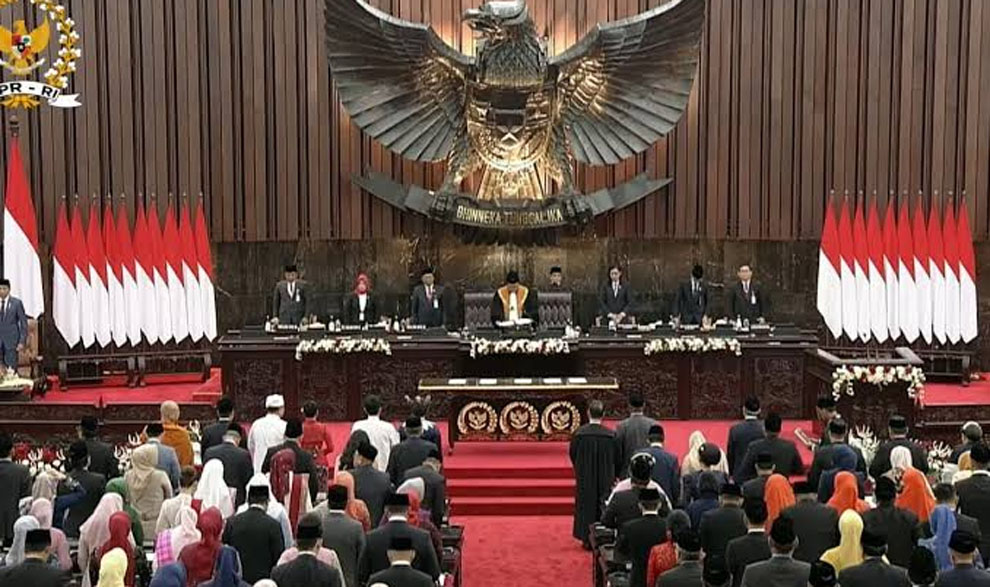
Three judges detained on bribery suspicion in Indonesia
Indonesia’s Attorney General’s Office, AGO, has detained three judges suspected of accepting bribes during a high-profile case involving illegal exports of palm oil.
AGO’s director of investigations Abdul Qohar made this known on Monday, according by the Jakarta Globe newspaper.
The judges Agam Syarif Baharuddin, Ali Muhtarom, and Djuyamto were detained late Sunday on suspicion of accepting bribes in exchange for acquittal of companies Wilmar Group, Permata Hijau Group, and Musim Mas Group.
In March, the suspects ruled that the companies had been exporting crude palm oil without government permits, but they decided that their actions did not fall under the country’s criminal laws, the newspaper reported.
According to Qohar, after questioning seven witnesses, we gathered sufficient evidence to name the three judges as suspects.
”They are fully aware that the payments were intended to secure a favourable ruling.
”In 2024, the judges first received 4.5 billion Indonesia rupees (268,111 dollars) through former South Jakarta District Court Chief Muhammad Arif Nuryanta, and then another 18 billion Indonesian rupees in second transaction.
READ ALSO:
- Troops rescue 16 kidnapped passengers in Plateau
- Court remands Portable over inability to meet bail conditions
- South-East youths shun Nigerian Army recruitment
”After detainment of the judges, the total number of suspects in the case reached seven.”
Meanwhile on Sunday, prosecutors identified South Jakarta District Court clerk Wahyu Gunawan, defence attorneys Marcella Santoso and Ariyanto, as well as Nuryanta as suspects in the investigation.
Wilmar Group, Permata Hijau Group, and Musim Mas Group have been accused of violating a temporary ban on exports of crude palm oil.
The ban on Indonesia export of crude palm oil was introduced by former President Joko Widodo in 2022 due to a nationwide shortage of cooking oil.
The government had then said that the country lost 10.9 million dollars as a result of the illegal exports, as it had to subsidise cooking oil prices in the domestic market to compensate for the crisis.
Five people, including a well-known market analyst Lin Che Wei and a high-ranking official from the Trade Ministry were sentenced to between one and three years in prison in January 2023 as part of the illegal exports case.
Other convicted defendants include former Director-General of International Trade at the Trade Ministry, Indrasari Wisnu Wardhana and business executives Master Parulian Tumanggor, Stanley MA, and Pierre Togar Sitanggang.
Three judges detained on bribery suspicion in Indonesia
RIA/NAN
International
Despite trade spat with US, China exports rises 12.4%
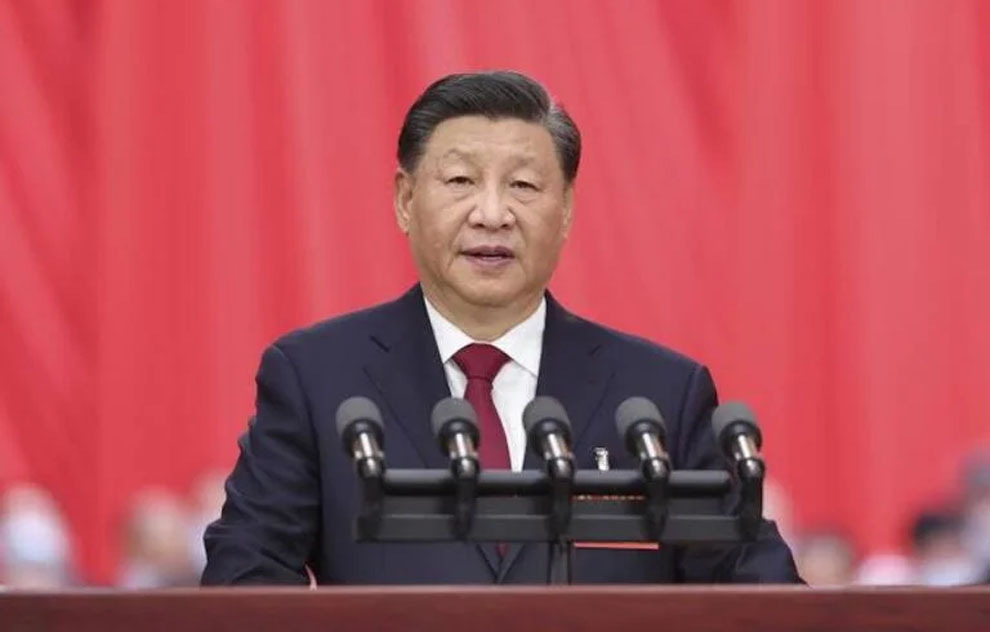
Despite trade spat with US, China exports rises 12.4%
China announced on Monday that its exports surged by 12.4% in March compared to the same period last year, defying forecasts and demonstrating resilience amid growing trade tensions with the United States.
According to figures released by the General Administration of Customs, the increase in outbound shipments more than doubled Bloomberg’s earlier prediction of 4.6%.
This performance comes as businesses rushed to beat a new wave of US tariffs introduced by President Donald Trump on his so-called “Liberation Day.”
Beijing and Washington remain entangled in a high-stakes trade standoff that has seen tit-for-tat tariff hikes. US tariffs on Chinese imports have risen to 145 percent, with Beijing retaliating by imposing a 125 percent levy on American goods.
Imports into China during the same period dropped by 4.3 percent. While still negative, this was a slight improvement from earlier months and suggested an uptick in domestic consumption.
Beijing reported that the United States was still China’s largest single export destination from January to March, accounting for $115.6 billion in trade. Remarkably, even as tensions escalated and new tariffs were introduced in March, exports to the US climbed roughly nine percent year-on-year.
China has set an annual growth target of around five percent, aiming to shift its focus towards domestic demand as the main engine of economic expansion. However, Trump’s trade war is emerging as a fresh challenge to this recovery strategy.
READ ALSO:
- Tinubu not in France for medical attention – Presidency
- Eedris Abdulkareem: I didn’t attack Seyi Tinubu with my new song
- Our position on Tinubu/Shettima 2027 campaign billboards – Presidency
The US government appeared to ease pressure slightly on Friday by announcing exemptions for several tech products, including smartphones, laptops, and semiconductors—key categories in which China plays a dominant role.
Analysts said the March export surge was likely driven by a wave of frontloading by companies aiming to ship goods before the April 2 tariffs kicked in.
“The strong export data reflect frontloading of trade before the US tariffs were announced,” said Zhiwei Zhang, President and Chief Economist at Pinpoint Asset Management. “China’s exports will likely weaken in the coming months as the US tariffs skyrocket,” he added.
Zhang also noted that “The uncertainty of trade policies is extremely high.”
Julian Evans-Pritchard, head of China economics at Capital Economics, added, “In anticipation of even higher duties, demand from US importers continued to hold up fairly well” in March. “But shipments are set to drop back over the coming months and quarters,” he warned. “It could be years before Chinese exports regain current levels.”
Despite efforts to boost the economy, China is still battling weak consumption and an ongoing debt crisis in the property sector. Last year, authorities introduced aggressive policies—including interest rate cuts, relaxed home-buying rules, higher debt ceilings for local governments, and market support measures.
However, enthusiasm faded when no concrete figures or timelines were released for a much-anticipated economic stimulus.
As the trade war intensifies, China’s ability to maintain export growth and achieve its economic goals will remain under close international scrutiny.
Despite trade spat with US, China exports rises 12.4%
International
US, Iran hold ‘constructive’ first round of nuclear talks
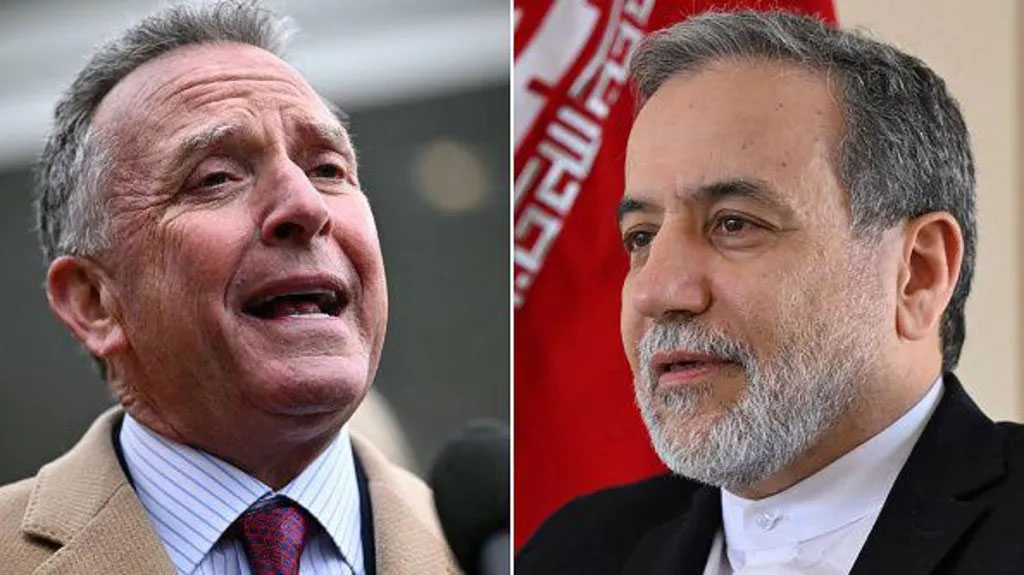
US, Iran hold ‘constructive’ first round of nuclear talks
Iran and the US have concluded a first round of talks in Oman over Tehran’s nuclear programme – the highest-level meeting between the two nations since 2018.
Both countries described the meeting as “constructive” and confirmed a second round of discussions will take place next week – with the US hailing the “direct communication” as being key to striking a possible deal.
President Donald Trump pulled the US out of a previous nuclear agreement between Iran and world powers in 2018, and has long said he would make a “better” deal.
The talks are seen as an important first step in establishing whether a deal can be done.
At two-and-a-half hours, the first meeting was brief, reportedly respectful – and set the stage for a second round.
That was probably as good as it could get when Iranian and US officials sat down in Muscat, the capital of Oman – whose top diplomat mediated the primarily indirect negotiations.
They were the most significant talks since Trump pulled the US out of the Iran nuclear deal of 2015 during his first term in office.
The verdict of Iran’s lead negotiator, Foreign Minister Abbas Araghchi, was positive.
“In my opinion, as the first meeting, it was a constructive meeting held in a very peaceful and respectful environment, because no inappropriate language was used,” he told Iranian state TV.
His diplomatic tone suggests the US team led by Trump’s envoy Steve Witkoff did not reiterate some of the president’s threats that Iran would face “great danger” if this dialogue did not succeed. He has repeatedly warned of possible military strikes.
READ ALSO:
- 2025 UTME: JAMB releases mock results
- Trump exempts smartphones, computers from new tariffs
- Gaza hospital hit by Israeli strike, Hamas-run health ministry says
This meeting ran with the delegations in separate rooms, relaying messages through Oman’s foreign minister, Badr bin Hamad al-Busaidi.
Witkoff, who is leading the US delegation, had previously only spoken of meeting face-to-face.
But Araghchi and Witkoff did speak for a few minutes in the presence of Busaidi – not the direct talks US officials said would happen but what could be a small but significant opening.
Iran, mindful of pressure from hardliners at home, underlined how limited their face-to-face exchange was, with no photographs taken.
In a statement following the talks, the White House said the discussions “were very positive and constructive”, noting that Witkoff had emphasised to Iran that he had instructions to resolve the adversaries’ “differences through dialogue and diplomacy, if that is possible”.
“These issues are very complicated, and special envoy Witkoff’s direct communication today was a step forward in achieving a mutually beneficial outcome,” the statement added.
Araghchi had said ahead of the discussions that his country wanted a “fair agreement”.
After the talks concluded, he said discussions next week may not happen in Oman, but would still be mediated by the Middle Eastern nation. The White House said they would take place next Saturday.
“Neither we, nor the other party, want fruitless negotiations, discussions for discussions’ sake, time wasting or talks that drag on forever,” Araghchi told Iranian state television.
The most important issue at stake is what kind of deal each side would be willing to accept.
Trump sent a letter to Iran’s supreme leader via the United Arab Emirates last month, saying he wanted a deal to prevent Iran from acquiring nuclear weapons and to avert possible military strikes by the US and Israel.
Iran hopes for a deal to limit, but not dismantle, its nuclear programme in exchange for sanctions relief.
An unnamed source in Oman told news agency Reuters that the talks would seek to de-escalate regional tensions and secure prisoner exchanges.
READ ALSO:
- Massilia Motors launches new Mitsubishi L200 with low fuel consumption, advanced engineering
- London mother sentenced to life in prison for drowning two sons
- LASRRA, LASDA to launch strategic documentation drive for Lagos diaspora database
Trump revealed the talks would take place during a visit by Benjamin Netanyahu to the White House on Monday. The Israeli prime minister said on Tuesday that both leaders had agreed that Iran “will not have nuclear weapons”.
Netanyahu has called for a “Libya-style deal”, referring to the north African nation completely dismantling its weapons programme in an agreement reached with Western powers in 2003. That would be completely unacceptable to Iran.
Iran insists its nuclear activities are entirely peaceful and that it will never seek to develop or acquire nuclear weapons.
Iranian officials have made it clear the negotiations will focus only on its nuclear programme, not its broader defence capability, such as its ballistic missile programme.
Ahead of the talks, Trump said on Friday that he wanted Iran “to be a wonderful, great, happy country – but they can’t have nuclear weapons”.
Trump has warned that the US would use military force if a deal was not reached, and Iran has repeatedly said it will not negotiate under pressure.
But this process is taking place under immense pressure.
Even as preparations were under way to arrange this first meeting, the US moved more warships and stealth bombers to the region and imposed more sanctions.
The US president told reporters in the Oval Office on Monday it would “be a very bad day for Iran” if the talks were unsuccessful.
Iran insists its nuclear activities are entirely peaceful and that it will never seek to develop or acquire nuclear weapons.
However, since Trump pulled out of the 2015 agreement – which expires later this year – Iran has increasingly breached restrictions imposed by the existing nuclear deal in retaliation for crippling US sanctions reinstated seven years ago, and has stockpiled enough highly-enriched uranium to make several bombs.
Under the terms of the 2015 deal, Iran agreed to only enrich uranium up to 3.67% purity for the next 15 years.
In February, the International Atomic Energy Agency (IAEA) nuclear watchdog reported that Tehran had stockpiled uranium enriched to 60% purity and could swiftly move to 90%, which would be weapons-grade.
The 2015 nuclear deal took nearly two years of intensive negotiations. At the start of this new effort to reach an agreement, Iran’s programme is far more developed and complex, and the wider region is far more volatile.
US, Iran hold ‘constructive’ first round of nuclear talks
BBC
-

 metro2 days ago
metro2 days agoKidnapping: Our lives are hanging by a thread, residents of Igbogbo-Baiyeku communities in Lagos cry out
-

 International2 days ago
International2 days agoUS embassy announces new visa interview requirements for Nigerian applicants
-

 Sports2 days ago
Sports2 days agoBreaking: Former Super Eagles coach Christian Chukwu passes away at 74
-
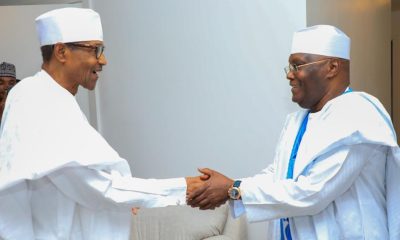
 Politics3 days ago
Politics3 days agoAtiku leads Tambuwal, El-Rufai, others to Buhari as 2027 election draws near
-

 Education8 hours ago
Education8 hours agoNELFUND: How schools, banks are ripping off students
-
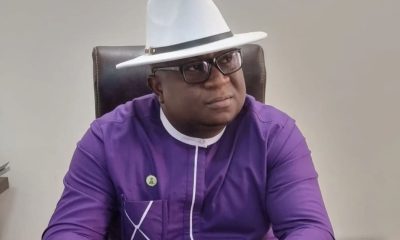
 metro2 days ago
metro2 days agoFG debunks US Embassy post on Nigeria’s security situation
-

 Auto2 days ago
Auto2 days agoMassilia Motors launches new Mitsubishi L200 with low fuel consumption, advanced engineering
-

 metro2 days ago
metro2 days ago5 injured in Computer Village store explosion – Police

